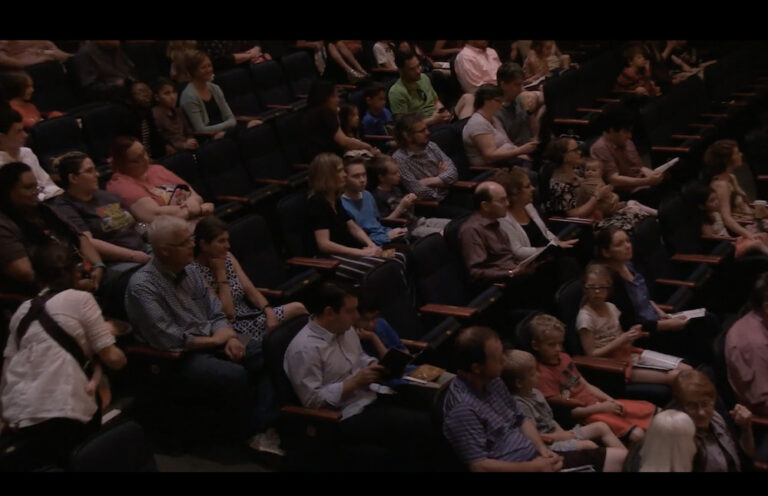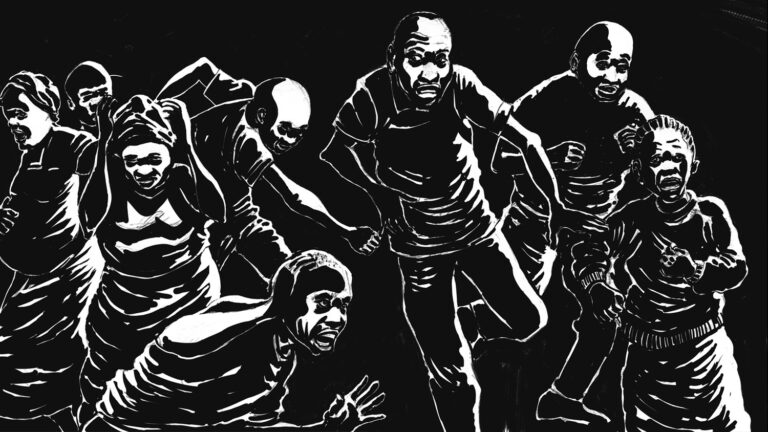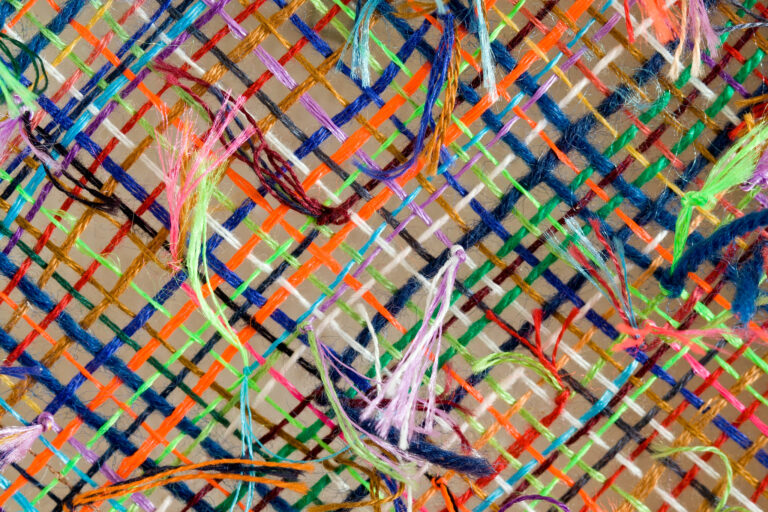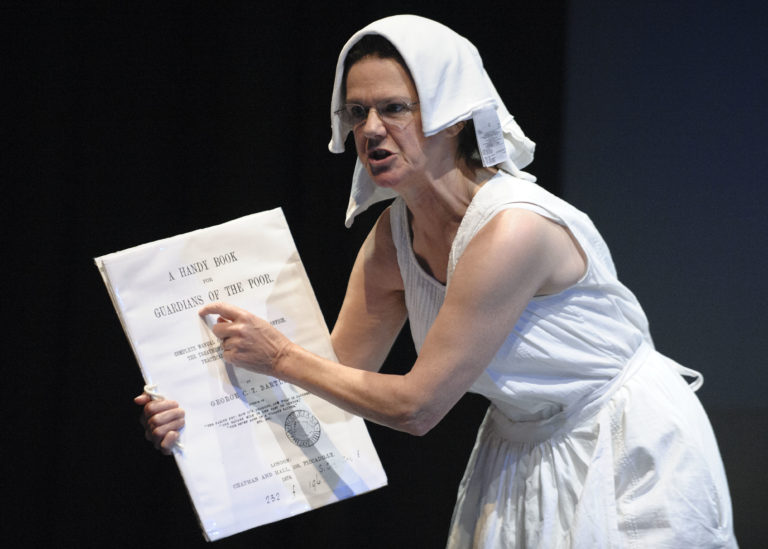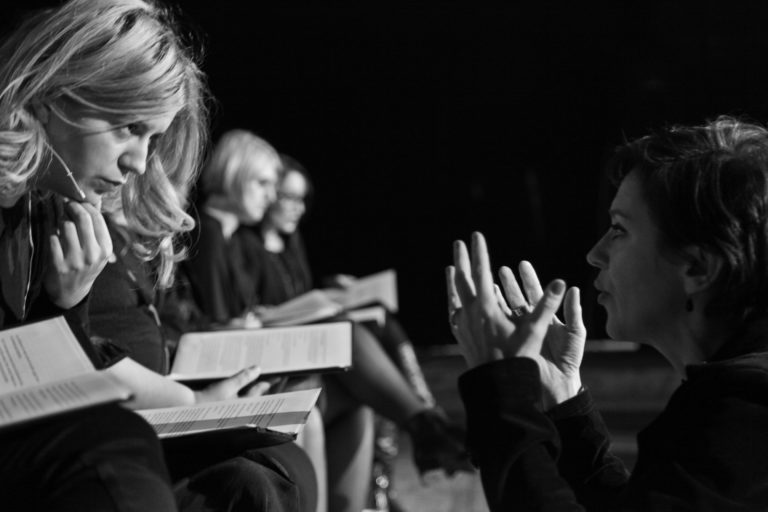Andrew Culp and the Cultural Studies Association’s Performance Working Group Co-Chair Hui Peng discuss “relaxed performance” with Leigh Jackson, Director of Accessibility & EDI Programming at People’s Light outside of Philadelphia, and Dr. Hannah Simpson, Lecturer at the University of Edinburgh and author of Samuel Beckett and Disability Performance (Palgrave, 2022). This podcast is accompanied by a scholarly commentary by Patrick McKelvey.
Keyword: theatre
Let’s Relax!
Andrew Culp and the Cultural Studies Association’s Performance Working Group Co-Chair Hui Peng discuss “relaxed performance” with Leigh Jackson, Director of Accessibility & EDI Programming at People’s Light outside of Philadelphia, and Dr. Hannah Simpson, Lecturer at the University of Edinburgh and author of Samuel Beckett and Disability Performance (Palgrave, 2022). This podcast is accompanied by a scholarly commentary by Patrick McKelvey.
Enacting Law: The Dramaturgy of the Courtroom on the Contemporary Stage
Although historical research into twentieth-century theatrical tribunals is widespread, the recurring theme of justice in contemporary performance practices remains largely unexplored. However, an increasing number of twenty-first-century artists have begun relying on structures of the court. By creating theatrical tribunals, these artists try to create a space for an alternative jurisdiction. However, a clear typology of this tribunal genre in the contemporary performing arts is still lacking. This article therefore aims to characterize theatrical tribunals. In the first section, I describe the setting of the courtroom as a theatrical place in which law gets enacted or performed. Following several scholars that already stated the important spectacular aspects of the legal system, I discuss the dramaturgy of the courtroom as a specific dramatic place with its own scenography, script, and dramatis personae. Next, by analyzing the dramaturgy of the courtroom, I distinguish two categories within the tribunal genre: (1) re-enactments of preeminent lawsuits that heavily rely on twentieth-century documentary practices and (2) performative pre-enactments of futuristic trials that have not yet been held or cannot be held because of systemic shortcomings. Finally I examine how contemporary theatrical tribunals could contribute to the enlargement of public knowledge on historical and contemporary examples of injustice, and whether they could obtain effective changes in our societies.
Review of Palestinian Theatre in the West Bank: Our Human Faces by Gabriel Varghese (Palgrave MacMillan)
In Palestinian Theatre in the West Bank: Our Human Faces, Varghese traces five Palestinian theatre companies—Al-Kasaba Theatre, Ashtar for Theatre Productions and Training, Al-Harah Theatre, The Freedom Theatre, and Al-Rowwad Cultural and Theatre Training Society—from the first intifada (1987–93), or uprising, to today, to show how abject counterpublics in the West Bank resist Zionist erasure narratives. In the book, Varghese weaves thick description of examples and performances with historical contextualization to draw readers into what motivates Palestinian theatre-makers. Varghese shows there is potential for resistance through the border anxiety developed in sites of colonial abjection. Ultimately, this text argues Palestinian theatres in the West Bank do more than just perform plays—they provide needed space where issues are exposed, communities gather, and marginalization is responded to with beautiful resistance.
Sing For Your Supper: Pauperism, Performance, and Survival
Come what may the house enables us to say: I will be an inhabitant of the world, in spite of the world.1 This essay presents a piece of performance research that brought together a theatre-maker/performer and a theatre researcher to explore the relationships between theatre and poverty. Our collaboration was just one part of a broader research project,…
Touring Testimonies: Rebalancing the Public Realm through Human Rights Activism in Asylum Monologues and Seven
In the contemporary globalized world, the life stories of marginalized and vulnerable peoples play a crucial role in attempting to leverage justice. Charities, non-governmental organizations (NGOs), and other bodies concerned to “raise the voices” of asylum seekers, displaced peoples, and victims of abuse flood the internet and other media with written and filmed testimonies in…
